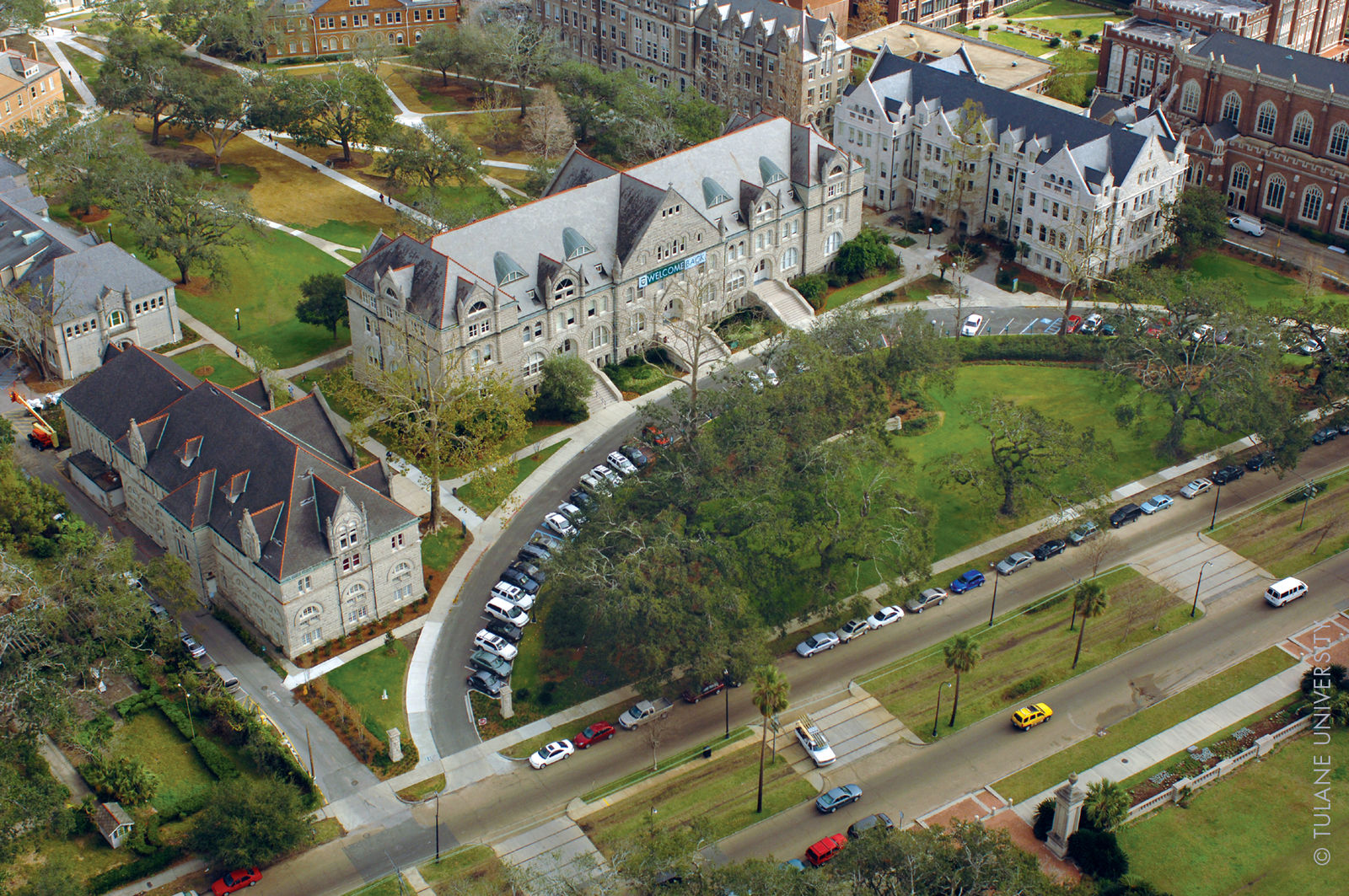
Tulane University (Photo: Wikimedia Commons)
Marie Davis today sits in a book-lined office in the Department of Communications overlooking Newcomb Quad as the Executive Secretary of the Department of Communications. A well-trafficked office, at any point in time one can see her fellow instructors, staff, and students paying her visits, discussing departmental matters, or simply saying hello. She considers herself an atypical student, but her extensive personal, academic, and professional history at Tulane makes her as integral a component of the University as the office in which she sits.
Marie’s unique Tulane story began in 1989, when she first became a member of staff. In the time since first joining the Tulane community, she has worked and studied at both the uptown and downtown campuses, starting her academic career in 1997, graduating in 2012, and bearing witness to the triumphs and travails of Tulane in the intervening years. Her story is one that touches the spectrum of experiences of the Tulane community: as an employee and staff member, as a Tulane graduate who has experienced taking classes among both full-time and part-time students, and as an individual who has witnessed the growth and rebirth of Tulane over two decades.
From her perspective, the single most significant event in the years she has been a member of the Tulane community was Hurricane Katrina. As opposed to many students who at the time we able to transfer or move back home, Marie was forced to relocate in the aftermath of the storm, but remained intimately tied to the city and the school. She moved only 70 miles away, and made daily trips into the city, despite a 6 pm curfew that forced New Orleans resident to leave for a lack of water and electricity in the city. Like many staff, she was initially let go, but in seven months she found a new position at Tulane, which she credits for helping her get back on her feet, as having roots and a job boosted her efforts to rebuild her home, which she had already taken the initiative to rebuild, and the place in the city she enjoys most.
Her new position at Tulane brought her to the Uptown campus, and closer to the more central activities of the University, but also introduced her to a new dimension of the University. Whereas the student body of the downtown campus was older, professional, and composed of many people with dependent families, the uptown campus was younger, with more full-time students. She recalls often being the only senior citizen, the only black woman, the “only…” in class, and that she was unfamiliar with many of the traditions in which Tulane and Newcomb students participated, since the part-time schools did not have similar traditions. Despite this, Marie’s favorite memories were those times when she was in class, and was able to share in the passion and knowledge that her instructors brought to the classroom. She was particularly glad to have taken art history and jazz history classes, during which she was able to delve deeper into the culture and history of New Orleans. Marie states that she was always able to enjoy the arts and music of the city, but she was not previously aware of its influence on the genre and “how it all began here.”
As a member of staff, Marie appreciates having made the decision to work on her academics and experienced life as a student at Tulane. Although she now finds it a relief to be able to read novels instead of textbooks, she was found the University and the School of Continuing Studies to be helpful, supportive, and the education she gained to be invaluable. “Pursue it,” she says, “It’s worth it.”
[Editor’s Note: This article was captured as part of the class “Media Histories” taught by Vicki Mayer in collaboration with the Office of Alumni Affairs at Tulane University. It was originally published on November 5, 2014.]
 NOLAbeings
Multimedia artist Claire Bangser created NOLAbeings as a portrait-based story project that marries...
NOLAbeings
Multimedia artist Claire Bangser created NOLAbeings as a portrait-based story project that marries...
 Data corner: Adobe Suite (create a PDF, social media graphic, presentation, edit a photo and video
Data corner is where you go to work with analytics and top tech skills. It takes on everything from PERL and SQL to Canva and Sprout Social.
Data corner: Adobe Suite (create a PDF, social media graphic, presentation, edit a photo and video
Data corner is where you go to work with analytics and top tech skills. It takes on everything from PERL and SQL to Canva and Sprout Social.
